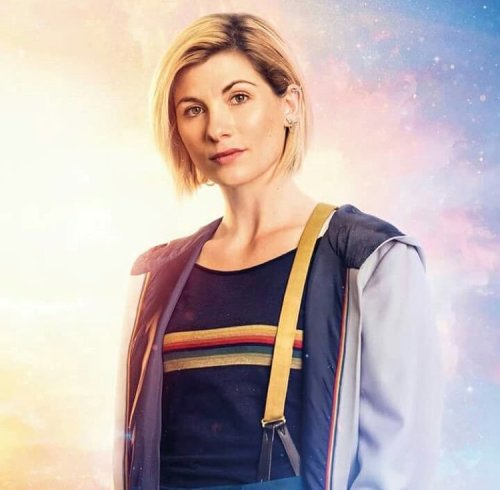
- Name: The Doctor
- Origin: An Unearthly Child, Doctor Who
- Media: Television
- Debut: 1963
There are few fictional characters who I regard so highly as the Doctor. A figure of fun, but one who stands for strong moral ideals for which I have the greatest respect.
Although, of course, ‘The Doctor’ is a very broad term which of refers to lots of different characters (sort of) and in this blog post, I’m really talking about the sum total of them all. When we were first introduced to them in 1963, they were a mysterious time traveller who we knew little about. Over the years we discovered that they were a Time Lord from the planet Gallifrey, travelling through time and space to fight against evil and changing their appearance and personality every time they die. In recent times, we discovered that there may be even more to the character than we ever knew before.
So, why do I like them? Well, a big part of it is what they represent. In their second story, they came up against the Daleks – a representation of human fascism. The Doctor stands against oppression and violence. They want people to be safe, happy and free and fight constantly to ensure that happens. And when I say they “fight” I mean that in a violent-free way. The Doctor is a hero who champions pacifism. Brain over brawn. Kindness over cruelty. This alone is a big part of my appreciation of the character, but that’s certainly not all of it.
The Doctor is joined on their travels by their numerous companions – people who they care very dearly for. I am someone who considers friendship to be very important and The Doctor reflects the importance of friendship much more than any other fictional character. They’re largely portrayed as asexual, with very few love interests shown throughout the series, but the friendships they have over the years are shown to be just as important as any romantic relationship. At one point, the relationship they shared with a companion was described as “so much more” than being just a couple – portraying friendship as potentially more valuable than romantic love. This isn’t something I’ve seen anywhere else, but is something which will definitely be true for some people.
On top of all that, they’re an anti-establishment, progressively-minded free spirit who proves it’s okay to be different. I find the world of politics to be a depressing one, so when I see the Doctor, an ageless, powerful being who stands up for the things I agree with, it’s some really wonderful escapism. And they’re pushing boundaries in reality as well – the ides of an alien being who has had various bodies occasionally changing sex may not seem a strange one, but when you see the negative reaction of some fans towards the casting of Jodie Whittaker as the first female Doctor on the show, you realise that the character is a force for good in the worlds of fiction and reality alike. Why shouldn’t they change gender? And, for that matter, why shouldn’t anyone else?
Of course, after almost sixty years, the Doctor has been portrayed in lots of different ways. Sometimes they do things which are at odds with the ideals which I admire them for – but that’s okay. Not only do these changes throughout incarnations make the character more well-rounded, but they also ensure that there’s a version of the character for everyone. Different incarnations resonate with different fans and that’s good. I can’t wait to see what the future holds for the character. But no matter which version appears in any given story (and I won’t get into which is my favourite just now) you’ll find these qualities appearing and that is why I believe the Doctor deserves a place in my Fictional Character Hall of Fame.
